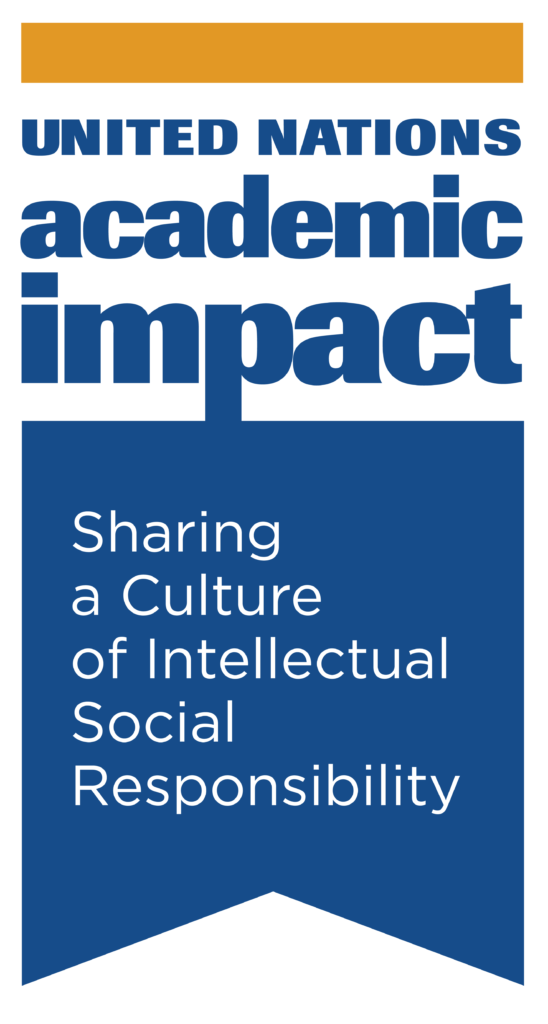
ATLANTA/MACON – Mercer University was recently accepted for membership in United Nations Academic Impact (UNAI), an initiative that aligns higher education institutions with the United Nations in supporting and contributing to the realization of U.N. goals and mandates, including the promotion and protection of human rights, access to education, sustainability and conflict resolution.
“Membership in UNAI provides important structures and incentives for Mercer to continue its progress towards being an internationally focused and globally engaged university,” said Dr. Craig McMahan, University minister and dean of Chapel. “Under the creative leadership of Dr. Julie Strecker, Mercer students will have a broad array of opportunities for better understanding and more impactful serving around the world.”
UNAI member institutions commit to following these basic principles: addressing poverty, capacity building, education for all, global citizenship, access to higher education, human rights, intercultural dialogue, peace and conflict resolution, sustainability, as well as the principles inherent in the U.N. Charter.
“I am excited for the new opportunities that joining the Academic Impact provides for Mercerians,” said Dr. Strecker, director of international programs. “Being active in this network and celebrating all the amazing work that Mercer community members do to improve the lives of our neighbors, locally and globally, will support our work to build meaningful partnerships and connect our students with external support for achieving their goals.”
Since 2010, UNAI has created a vibrant and diverse network of students, academics, scientists, researchers, think tanks, institutions of higher education, continuing education and educational associations.
More than 1,400 member institutions in more than 147 countries reach in excess of 25 million people in the education and research sectors around the world representing a global diversity of regions and a thematic wealth of disciplines. UNAI serves as the integral link to these institutions to ensure that the international community harnesses the energy and innovation of young people and the research community in service to humanity.
UNAI assists stakeholders by disseminating information on U.N. initiatives and activities, providing ideas on how these activities can be applied at the local level on college campuses, in classrooms and in communities, and by providing a platform where university students, academics and researchers can connect and share ideas, research and resources to further the Sustainable Development Goals and other U.N. mandates.
“Through traditional and innovative programs, Mercer gives life to the spirit of the United Nations, whether through Mercer On Mission service opportunities abroad, its schools related to health and medicine, or its exploration of the possibilities of faith-based diplomacy, among so many others,” said Ramu Damodaran, chief of United Nations Academic Impact.
There is no cost or fee for universities to join UNAI. Each member institution is solely responsible to actively demonstrate support of at least one of the 10 UNAI principles or Sustainable Development Goals each year. Membership in UNAI does not constitute an accreditation or endorsement by the United Nations of the member institutions, their activities or services, or their officials or other personnel.










